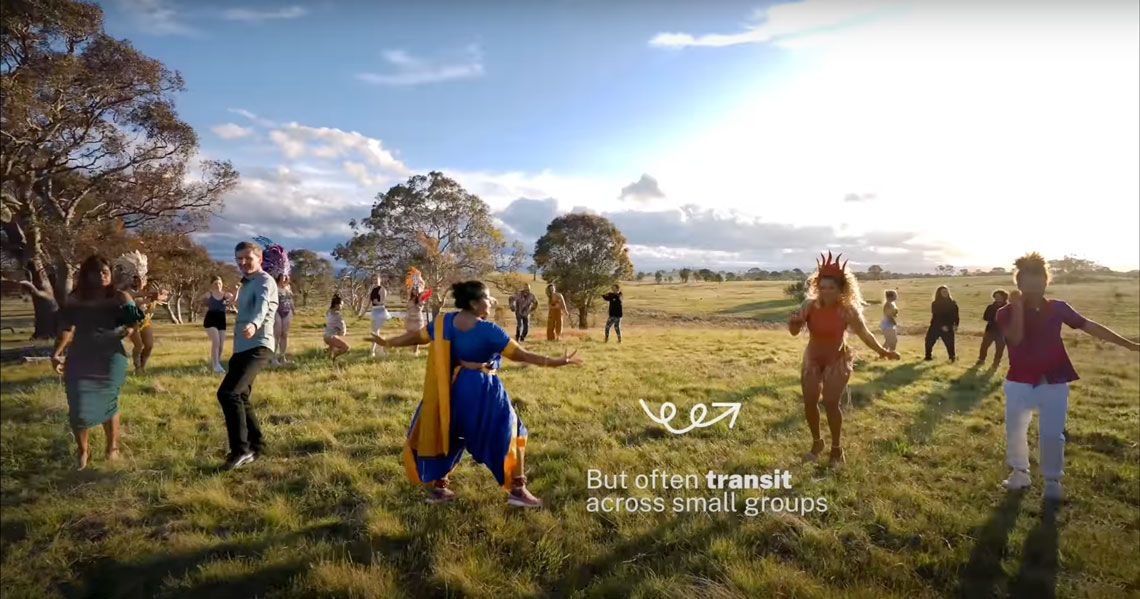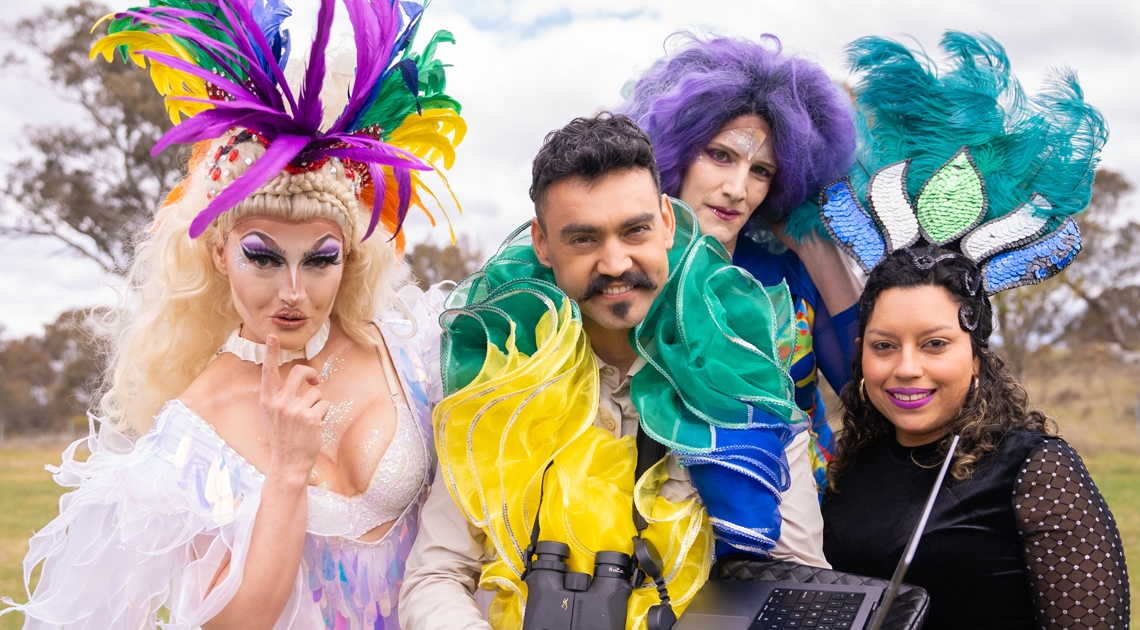“Differences lead to diversity, this exists in every species,” states Brazilian biologist Weliton Menário Costa in a video about his doctoral research. “It’s natural.” This is true for any species, according to the researcher, but he is initially referring to the variation in personalities in a population of eastern grey kangaroos (Macropus giganteus), a species he studied in Australia during his doctoral studies, which he completed in 2021. Kangaroo time was posted to YouTube in January of 2024 and became an instant success: it won this year’s Dance your Ph.D. contest, promoted by Science magazine and the American Association for the Advancement of Science (AAAS), to which the journal is associated.
Created in 2008, the initiative challenges researchers to explain their projects through dance. There are four categories: physics, chemistry, biology, and social sciences. The first-place winner in each category receives a prize of US$750 and the overall winner, selected from among these four, wins an additional US$2,000. Weli (the artistic nickname for the researcher who prefers to be called Dr. Weli in academic circles) was the first Brazilian to win the contest’s main prize.
“I wanted to make the best video in the history of Dance your Ph.D.,” says the researcher from Espírito Santo. “The major advantage of this type of initiative is that it helps scientists and people without a science background establish neutral territory,” says biologist and scientific illustrator Carolina Frandsen, a researcher at the Research Group on Culture, Education, and Scientific Dissemination at the University of Campinas (CEDICiências/UNICAMP), who is currently doing a postdoctoral internship at the A.C.Camargo Cancer Center. “Through art, theoretical and conceptual knowledge matter a little less than in other contexts; it can break down communication barriers, because the expert uses elements that are familiar to the nonexpert public,” she argues.
In the clip Kangaroo time, people of different nationalities, genders, ages, sexualities, and ethnicities represent kangaroos while they dance to music composed by the researcher and artist. “Science already knew that these social animals had personality, but I wanted to investigate how it is formed and how it manifests, what affects its formation,” explains the biologist, who performed his research at the Australian National University (ANU) in Canberra.
For three years, he closely observed the routines of more than 300 kangaroos that live in Wilsons Promontory National Park, located in the southeast of Australia, about 620 kilometers (km) from the capital. With the help of colleagues, the Brazilian researcher found that each kangaroo had its own personality, corroborating previous studies, which results in unique behaviors. What surprised the researcher during his work, however, was realizing the strong effect that the group has on the kangaroo community. “The differences among groups of these animals were greater than the differences among individuals, which indicates that they change their behavior as they move between groups,” explains Weli.
Similar to other social beings, kangaroos form their personalities in infancy. Although they exhibit individuality, members of the same family—siblings, for example, or mothers with their offspring—behave quite similarly even when they are apart. In an article published in late 2023 in the journal Behavioral Ecology, Weli details how living with their mother during the first two years of life influences the formation of each kangaroo’s personality.

Reproduction of the videoThe video includes texts summarizing the resultsReproduction of the video
“I needed to show the diversity in the kangaroos’ personalities, so the solution was to enlist dancers with different styles and show the diversity that already exists in the world of dance,” he explains. In the clip, people representing kangaroos dance Brazilian funk, samba, and capoeira in homage to the researcher’s Brazilian heritage, and drag queens represent Weli’s queer identity. “It’s a song about my doctorate, but also about my migration to Australia. I didn’t want it to just be about the results,” says the biologist. The diverse dance styles are notable in the composition and reflect the cultural diversity he found in the country.
To bring the project to life, Weli enlisted the help of Australian Nicholas Moynihan, a researcher in the field of music at ANU. Moynihan got free access to the university’s music recording studio and composed the song with Weli. The Brazilian was also supported by another Australian colleague, Nic Vevers, who handled the audiovisual production for the clip, including camera work and editing.
“Many researchers still see initiatives like this contest as a ‘waste of time,’ a distraction from the ‘real work,’ but making a video like the one I made requires a lot of work and technical knowledge,” reflects the biologist, who is a fan of interdisciplinarity and values scientific dissemination through artistic media. “I created a musical product that was based on science done the way it should be, with rigor,” he says.
With his doctorate that he earned in 2021, Weli is in the process of changing careers. As well as teaching dance, he sings in bars and wants to fulfill his childhood dream of working with music and art. Born in the rural community of Conceição do Castelo, in inner Espírito Santo, and the son of rural workers, Weli studied in the city of Alegre and was encouraged to be a researcher by his high school biology teacher. As an undergraduate at the Federal University of Espírito Santo, still on the Alegre campus, he was part of a research group on goat behavior and had the opportunity to go to Australia for the first time in 2013 through the federal Science Without Borders program.
After graduating, he applied for postgraduate scholarships abroad. He did not receive one in the United Kingdom, where he submitted a project to continue studying goats, but he was accepted to study for a doctorate in Australia, without having earned a master’s degree, with a full scholarship to study kangaroos. “It was easier to learn statistics than to write everything in English,” admits Weli. “The writing was very difficult for me psychologically, it’s a lonely job.”
Dancing, on the other hand, is natural. “Art helps me reconnect with the child I was, while science and my title help me have social validation and develop my intellectual side,” says Weli. Kangaroo time, his first release, is a manifesto in defense of the richness of human diversity. To celebrate his academic career and kick off his musical one, he is working on an EP called Yours Academically, Dr. Weli, and new clips—the most recent from the song Shall we let it go?. “It’s my story of transitioning, the story of a scientist who wants to become a Latin pop star,” he says. “But it’s not an end to science: only to the formal career of being a scientist.”
Republish